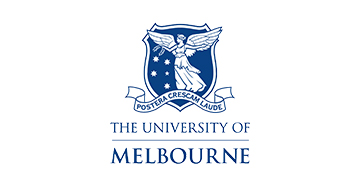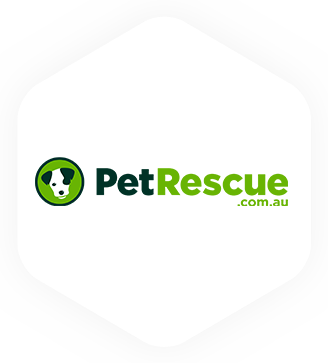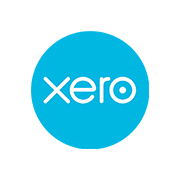Sorry! Registrations for this project has now closed.
But don’t worry, similar projects are coming soon, so leave your email address to be the first to know.
- Project starts1 February 2023
- PrerequisitesNone
- Places remaining9
- Project Duration9 weeks
- Course Price $3400
The Brief
PetRescue is a national animal welfare charity with a vision of a future where every pet is safe, respected and loved. We help save thousands of lives every month by looking at the big picture, disrupting the status quo and finding innovative tech solutions to the biggest challenges facing rescue pets in Australia.
Today, PetRescue has helped 738,000+ pets find new homes and provided $12.6+ million worth of food and product donations to pets in need. PetRescue is most known as the most popular and successful pet adoption platform in the southern hemisphere, www.petrescue.com.au, and also as Australia‘s most visited charity website.
This brief focuses on the development of a digital marketing strategy for PetRescue’s fundraising campaigns. Each year, PetRescue has 2 main fundraising appeal periods (May-June and Christmas Nov-Dec). This brief aims to help PetRescue expand their fundraising efforts via an always-on initiative and/or shoulder campaigns in between the 2 main appeal periods mentioned previously.
Students should conduct market research with either of these audience segments, select one and form a digital marketing strategy for how best to reach this audience and drive stronger donation contributions outside of the main appeal periods.

Meet Your Mentor
Meet Your Mentor
Amber Dermoudy is a digital marketing and social media specialist with a passion for building and promoting communities of interest.
Currently, Amber is Senior Social Media Manager at Xero – a global technology company specialising in financial management software. In the past, Amber has worked as Head of Social and Digital
Amber Dermoudy is a digital marketing and social media specialist with a passion for building and promoting communities of interest.
Currently, Amber is Senior Social Media Manager at Xero – a global technology company specialising in financial management software. In the past, Amber has worked as Head of Social and Digital in both agency-side and client-side roles for a number of leading brands including Toyota Australia, Pizza Hut, Colgate-Palmolive, VOSS, Destination Queenstown, NBN, Tencent, Expedia, ABC, TEDx and Spotify.
A pseudo-geek at heart, Amber is fascinated by exploring emerging technologies especially within the platforms, metaverse and AI space.
Buyer Persona's
A buyer persona is a fictional representation of your ideal client or target audience. With a clear picture of who you're marketing to, it's much easier to develop effective, targeted content that speaks to your ideal buyer's goals and challenges. Think of your buyer personas as a personal narrative.
How it will be practiced and demonstrated
Students will be required to synthesise their research in applicable projects and develop Buyer Personas that illustrate their target user. Your Buyer Persona will guide your marketing activities and help to provide your client with a rationale for your marketing choices.
Requirements Gathering
Requirements gathering is the practice of interviewing key stakeholders of a project to understand what is required to be solved. This is an important skill for anyone working in the world of problem solving, which these days affects almost all career paths.
How it will be practiced and demonstrated
All of our projects include direct access to a company stakeholder who will form the client on your project. You will get an opportunity to learn how to capture business requirements from stakeholders through a live workshop and translate this into meaningful actions to drive your design, product or marketing process during your project.
Content Marketing
Content marketing is a strategic marketing approach focused on creating and distributing valuable, relevant, and consistent content to attract and retain a clearly defined audience — and, ultimately, to drive profitable customer action.
How it will be practiced and demonstrated
Students will prepare a content marketing strategy to demonstrate how they recommend a target audience should be engaged with from a content and messaging point of view. The strategy will be linked back to the overarching business goals of the organisation.
Data Analysis
Data analysis is the process of using analytics tools to capture data that reveal insights about the user experience, marketing performance, product adoption and general business model. Insights from this analysis is used to help build better products, make better marketing and user experience decisions and iterate on a products value proposition.
How it will be practiced and demonstrated
During your project, you will be tasked to seek out any available data on your project and integrate this into your project solution. This may be market-level data or product specific data, all of which helps to provide clarity on key product decisions and the behavior of your customers.
Defining the Customer Strategy
The key capabilities in defining a customer strategy starts with a deep understanding of the target audience. This combined with market analysis, product positioning and a clear understanding of the available marketing channels provides an integrated approach on how to market to these customers
How it will be practiced and demonstrated
During applicable project(s) you will define your customer acquisition strategy by using the supporting project activities (e.g. research) to help provide direction and rationale for your chosen strategy.
Market Research
Market research is the process of gathering valuable information about the needs and preferences of consumers. It helps in determining if there is a market for a product or service and is a key part in developing any business. It gives businesses an insight into the profiles and spending habits of consumers and provides companies with the data necessary for making good business decisions.
How it will be practiced and demonstrated
During your project, you will conduct market research relevant to your target product and help to illustrate how it's value proposition is placed in the market. As well as help to inform what marketing decisions are included in your marketing plans.
Search Engine Optimisation
The key capabilities in Search Engine Optimisation (SEO) include an understanding of how Search engines work. Including how on-site and off-site SEO techniques impact how search engines perceive a website and using this knowledge to structure an effective approach to driving traffic through organic search.
How it will be practiced and demonstrated
Students will conduct a SEO audit to provide recommendations on what on-site and off-site SEO changes should be made to drive better domain ranking for the organisation. Students will start with a keyword research analysis to inform their recommendations.
Social Media Marketing
The key capabilities in Social Media Marketing starts with a strong understanding of how and which users interact with the various Social media platforms available. It includes understanding what content, timing and mix makes can drive the best engagement and ROAS over time.
How it will be practiced and demonstrated
Students will apply a variety of social media marketing actions during their projects. Including an analysis of viable platforms to reach their target audience, a content calendar for organic reach, as well as paid advertising campaigns to best reach their audience during their buyer journey.
During your projects, you will have a chance to practice and demonstrate competency in communication by successfully transmitting your ideas, thinking processes and solutions in a way that is easily understood by others.
Your mentor will observe and assess your competency across a number of communication related skills including;
Listening
Listening is the ability to accurately receive and interpret messages in the communication process. Listening is key to all effective communication and is not a passive process. In fact, the listener can, and should, be at least as engaged in the process as the speaker. The phrase ‘active listening’ is used to describe this process of being fully involved.
Presence
Your presence signals your capacity to stand out and make an impact on those around you. As you move into senior roles, this attribute becomes particularly important, however it is also an attribute that can support your ability to make a positive impression on hiring managers during a job interview process.
Articulation
An ability to express yourself in a coherent form helps to ensure people will understand your value. Great articulators are able to clearly communicate complex scenarios to their audience to ensure they are understood. This can go a long way to supporting your interview process and building confidence in those you are communicating with.
Inclusivity
In a modern work environment you are required to work with individuals from a variety of backgrounds, cultures and social positions. The most highly effective teams are those that are able to adapt and learn to work with a range of people and personalities.
A tried and true skill for any professional is the ability to present their ideas to an audience and effectively transmit the intended message. You will have the opportunity to strengthen your presentation skills in front of a live company stakeholder at the conclusion of your project(s).
Your mentor will observe and assess your competency across a number of presenting related skills including;
Introductions
Your presentations should take your audience on an engaging journey. How you start a presentation is critical to capturing your audience’s attention and establishing the premise and flow of the story line.
Presentation Structure
The structure of your presentations will determine whether your audience comes away with new insights and understanding or if they dis-engage from your message. Take the time to consider the structure of your ideas, the order they follow and how they how to support the audience on their journey to your conclusion.
Conclusions
Bring home your presentations with a conclusion that links back to your main points and introduction. The goal of a good conclusion to a presentation is leaving your audience with a tangible take-away that adds value to them. Knowing your audience and what is important to them is a key starting point to forming a strong conclusion.
Audience Feedback
At times you will be required to field questions and be ready to move off-script to maintain the value exchange between yourself and the audience. Great presenters encourage audience interaction and curate this dynamic to emphasise key points in the presentation without letting it derail their core message.
Presence
Your audience will feel as comfortable as you are. Therefore it is important to ensure you are as comfortable as possible with the material you are presenting and strive to maintain confidence in your own abilities to deliver the presentation. Practice makes perfect here so don’t get disheartened if it takes some time before you’re completely at ease delivering your message in a presentation format.
The best solutions are most often formed through the input of multiple people. In modern work environments, small team collaboration is an increasingly sought after skill by employers, as agile ways of working are adopted that bring together multiple disciplines around a unified challenge.
Your mentor will observe and assess your competency across a number of collaboration related skills including;
Interaction
Effective collaboration with others is one of the primary skills hiring managers look for in new talent, particularly for digital roles where you are required to work closely with individuals from all different departments and skill sets. Collaboration is the make up of all your interactions with your teammates and stakeholders.
Teamwork & Leadership
There will be times during your Harness Projects where you will need to work as a team to synthesise research or support each other with feedback and advice. You may be called on to lead as the group recognises a specific skill set in you in relation to a task at hand. Your communication skills will be your foundation for success here, so take the opportunity to step into leadership roles and inspire confidence in yourself and others.
Conflict Resolution
Conflict, arguments and change are a natural part of our lives and often helps us learn more about differing beliefs, cultures and backgrounds. How we respond to these moments goes a long way to determining how quickly a group, organisation or culture can find a foundation of harmony to continue working / relating effectively, to the task at hand.
Initiative & Contribution
Showing initiative is doing things without being told; finding out what you need to know, continuing when things get tough, and spotting and taking advantage of the opportunities that others pass by. You act, instead of reacting, at work. Initiative has become increasingly important in today’s workplace. Organizations want employees who can think on their feet and take action without waiting for someone to tell them what to do. After all, this type of flexibility and courage is what pushes teams and organizations to innovate and to overcome competition.
You will demonstrate empathy by listening to your end-users and stakeholders and appropriately translating their needs, motivations and pain points into your final recommendation solution. A number of important factors contribute your over empathy as a working professional. This includes compassion for your colleagues and customers, an openness to alternative ideas and ways of working, a curiosity to understand others on a deeper level and the social awareness to foresee the impacts of the work you contribute.
Your mentor will observe and assess your competency across a number of empathy related skills including;
Compassion
When you sit in a room with your colleagues or your clients do you ever look for where there’s a pain in the room? And if you do notice, do you feel content enough to do something about it? Studies are finding these simple acts found in compassionate workplaces are helping to produce more productive, efficient and happier employees in organizations. Differing slightly from empathy which allows us to mirror someone else’s feelings, or altruism which is an action that benefits someone else, compassion is an
emotional response when perceiving suffering and involves an authentic desire to help. At Harness Projects, we strive to build a team culture of compassion. We’re all on this learning journey together and the more we can demonstrate moments of compassion for one another and all of our unique experiences during the project the stronger the bond we will form and the better the outcomes will be for everyone involved.
Openness
Openness is one of the big 5 personality traits. People who demonstrate high levels of openness tend to be linked to high levels of creative thinking, curiosity and flexibility. Openness includes a receptivity to new ideas as well as an attention to the inner feelings of others. These are traits that will support you well in the problem solving work you do.
Curiosity
Curiosity is a quality related to inquisitive thinking such as exploration, investigation, and learning. Curiosity as a behavior and emotion is considered the driving force behind not only human development, but developments in science, language, and industry. Every problem you encounter will ask for a level of curiosity from you. The more you can surrender to that curiosity and reserve assumptions or early judgement, the more space you will have to seek out novel and effective solutions to the design challenge at hand. Not only that, but a curiosity in how you develop during this learning program is a self-awareness trait that hiring managers will value highly.
Social Awareness
Having an awareness of the impact of your work is critically important to how you can contribute to the world we want to live in. You are in an extremely fortunate position to be part of an education program along with learning a skill that can help shape the experiences of millions of less fortunate people. The projects we curate at Harness Projects are all about applying all of your efforts to meaningful causes. It hopefully shows us what is possible and demonstrate that all of our efforts when combined contribute to the type of world we want to live in.
Real-world projects can bring unexpected challenges and opportunities. Just like a real-world work environment, your capability for resourcefulness can go a long way to securing a successful career. Your mentor will guide you and assess you on your ability to demonstrate self-direction when required, problem solving and project management capabilities and your openness to learning from circumstances that arise. We focus on this to ensure that our graduates are equipped with the internal resourcefulness to excel in the workplace.
Your mentor will observe and assess your competency across a number of resourcefulness related skills including;
Self-direction
Self-direction is the ability to regulate and adapt your behavior to the demands of a situation in order to achieve one’s goals. Sometimes related to willpower, it describes the extent to which a person demonstrates integrated purposefulness rather than a disorganised set of reactive impulses. Throughout your project, there will be moments to receive guidance from others and moments to make the experience your own through self-directed learning. Ask questions and take actions that help to align your trajectory to the outcomes you have set for yourself during the project.
Problem Solving
Problems solving is at the centre of what many people do at work every day. Whether you’re solving a problem for a client (internal or external), supporting those who are solving problems, or discovering new problems to solve, the challenges you face can be large or small, simple or complex, and easy or difficult. Your project is a problem solving sandbox, with your project brief forming the overarching problem you are attempting to solve.
However, within that overarching problem are countless mini-problems that you will encounter on your journey.
Project Management
Project management skills are not simply reserved for those with the “Project Manager” title. In work, we all have a responsibility to apply effective project management skills to the work that we do. This includes managing our time, planning out the activities we intend to take to reach our goals and making the best use of the resources and support at hand. The earlier you can get into a project management mindset for your project the better it will go. Plan your time early and plan often. By staying on top of this during your projects, you will ensure a smooth run to the finish line instead of a heavy workload at the very end. This skill will serve you well in ensuring you maintain a work life balance in your career.
Learnability
Learnability is being seen by some companies as the most sought-after attribute for both employees and job candidates, even up to senior executive levels. Learnability describes someone’s aptitude for learning, developing new skills and adopting novel ways of doing things. Those individuals who are highly proficient learners are seen as adaptable and
therefore able to keep pace with the dizzying level of technological and commercial change companies are currently coping with. Disruptive innovation doesn’t disrupt them – they figure it out, adapt and are rapidly productive in the new environment.
Agile behaviors consist of specific traits including self-reflection, resilience, creativity and a growth mindset. When brought together, these skills contribute to an individual who has the ability to stay agile in a changing work environment and a capacity to evolve to take advantage of opportunities for growth.
Your mentor will observe and assess your competency across a number of agile related skills including;
Self-reflection
Self reflection is like looking into a mirror and describing what you see. It is a way of assessing yourself, your ways of working and how you learn. To put it simply ‘reflection’ means to think about something. Reflecting helps you to develop your skills and review their effectiveness, rather than just carry on doing things as you have always done them. It is about questioning, in a positive way, what you do and why you do it and then deciding whether there is a better, or more efficient, way of doing it in the future.
Resilience
Resilience is the ability to cope with unexpected changes and challenges in your work and life. It’s not always possible to prevent stressful or adverse situations, but you can strengthen your capacity to deal with these challenges. You can start to build resilience by asking yourself; What can I do to get back on track? I can’t control everything, so what is in my control? Can I change something I’m doing to make things better? What can I learn from this? There are no guarantees that real world projects will be smooth sailing. You may need to nd inner courage and resilience to get through challenging moments in your project experience. This is a sandbox for your growth but remember to reach out for support when you need it.
Creativity
Creativity is the act of turning new and imaginative ideas into reality. Creativity is characterised by the ability to perceive the world in new ways, to nd hidden patterns, to make connections between seemingly unrelated phenomena, and to generate solutions. Creativity involves two processes: thinking, then producing. Your project-based learning experience will be a creative endeavor in forming your UX solution. There are ways to enhance your creativity, here are some starters; Seek out associations, that is connections between questions, problems or ideas from unrelated fields. Pose queries that challenge common wisdom. Scrutinize behavior of customers and competitors.
Growth Mindset
A growth mindset describes the underlying belief people have about learning and intelligence. When students believe they can get smarter, they understand that effort makes them stronger. Therefore they put in extra time and effort, and that leads to higher achievement. This is because they worry less about looking smart and they put more energy into learning. We all have triggers that bring us back to a fixed mindset. It may be when we face challenges or criticism. To remain in the ‘growth’ zone, we must identify and work with these triggers. Once we can identify the triggers, we can learn to talk back to it, persuading it to collaborate with us in pursuing our goals.
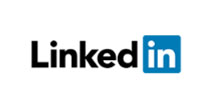
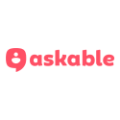

We've partnered with leading organisations in the Digital Marketing industry to ensure you receive the most industry-relevant learning experience possible.
Overall, I really enjoyed this learning experience. It was a highlight for me, considering the challenges of COVID-19. The live weekly classes, access to a mentor and employability scorecard report at the end were features that I found particularly valuable.


